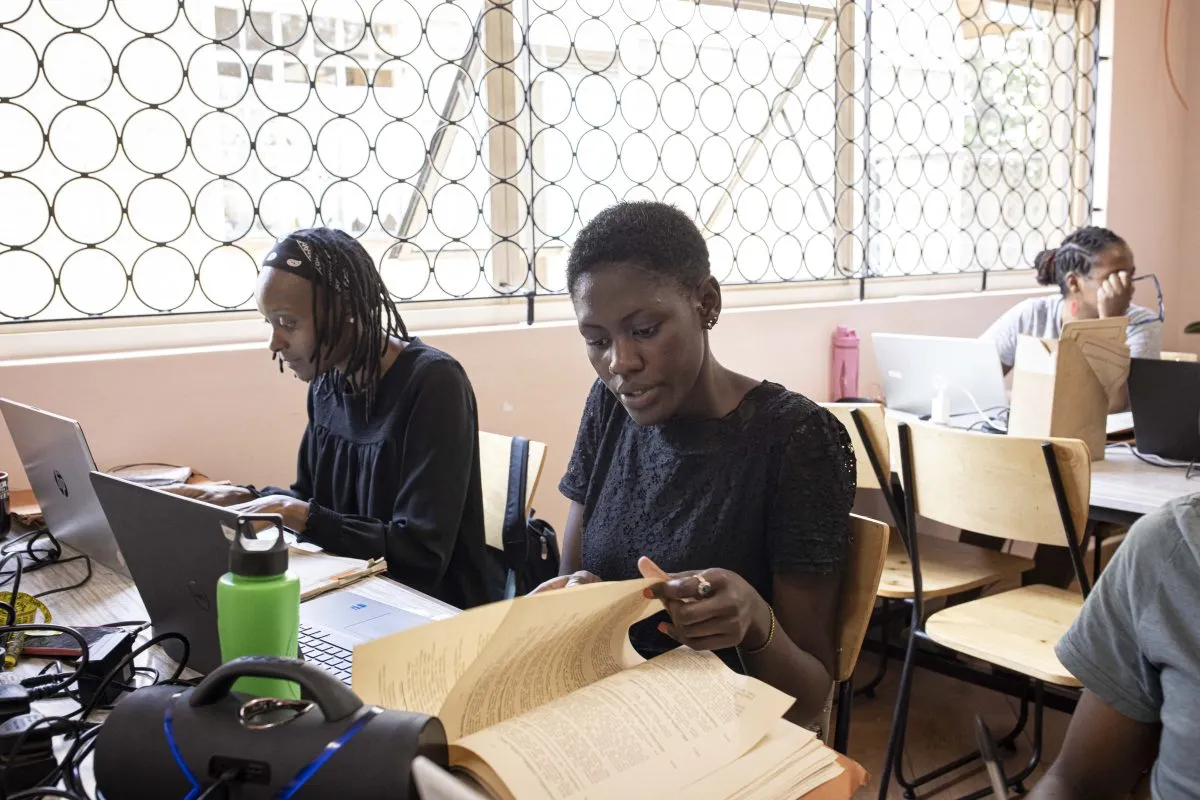Small and medium enterprises (SMEs) are the beating heart of many African economies, accounting for 50% of the GDP and 95% of all registered businesses in Sub-Saharan Africa, according to the World Economic Forum. Despite this, SMEs suffer from a chronic lack of financing. For women entrepreneurs, prospects are even worse, receiving only 2% of available funding in Africa, according to the Bill & Melinda Gates Foundation.
Women are less likely than men to have assets in their name which means that they lack collateral for a loan, less likely to have formal identification, and less likely to have a bank account. Women also face systemic bias, with lenders in the formal sector more reluctant to finance them.
And yet research shows that women are significantly more likely than men to reinvest their earnings in the education, health, and nutrition of their family and community. This clearly highlights that investment in women can lead to stronger growth and transform African societies.
“If the system is designed for men, you are excluding more than half the population in Africa,” says Greta Bull, director of women’s economic empowerment at the Bill & Melinda Gates Foundation.
The significance of smartphones
Digitalisation provides opportunities for women to reduce the gender financing gap. Women in Africa are often constrained by gender norms in their community, such as tending to children, and performing other household duties. This unpaid labour normally takes up a large portion of their time.
Their male counterparts instead might be expected to go to school, or search for paid work. That’s why owning a smartphone can be a gamechanger for women in Africa, argues Bull. It allows for a wealth of benefits, such as the exposure to new sources of information – an example could be finding tips on how to run a business on YouTube. Through direct but also indirect ways, owning a smartphone can positively affect the chances of accessing finance for women.
“A smartphone gives people access to so much – it is very empowering,” says Bull.
Digital technology enables the seamless recording of transactions which can then be turned into data that can inform decision-making. This data can be stored, centralised, transferred without the need of paperwork or transport costs. The implications of this technology for women is that it would allow for them to access finance from their electronic device and make travelling to a financial institution – often far away and unfeasible – obsolete.
However, many women still lack access to mobile internet. An “alarming” 785 million women remain unconnected worldwide, with approximately 60% residing in South Asia and Sub-Saharan Africa, according to industry organisation GSMA’s Mobile Gender Gap Report 2024. While the mobile internet gender gap in Sub-Saharan Africa narrowed slightly from 36% in 2022 to 32% in 2023, it is still not notably different from the 34% gap recorded in 2017.
“The reduction in the mobile internet gender gap is promising but sustaining momentum is fragile…gender gaps stem from complex social, economic, and cultural factors, that require collective action from a broad set of organisations. We are calling on stakeholders including governments, MNOs [mobile network operators] and development groups to work together to measure, understand and tackle women’s needs and barriers effectively,” says Claire Sibthorpe, head of digital inclusion at the GSMA.
Even where women have access to smartphones and related financial services, MNOs can be risk averse, and their financing unsustainably expensive for SMEs.
Lending solutions
That means that additional progress is needed in crafting digital financial products which are both accessible and affordable to women entrepreneurs.
Yoco, a South African technology company, offers ‘advanced capital,’ to mostly smaller and medium sized businesses in the country. According to Yoco, advanced capital can be applied for within three months of trading, whereas traditional banks in South Africa require at least one year of trading time.
Applications for advanced capital can be made in totality online and decisions are reached quickly. Furthermore, repayments are not fixed like traditional loans; they will slow down if business is slow which suits SMEs, often operating in environments of high uncertainty.
This kind of digitally-enabled lending solution offers an opportunity for women, who may lack collateral, or a history of credit information, to be included into the system by lowering the barriers to access finance. “Having access to Yoco capital has really helped us in crucial moments, it was easier and faster to get access to capital funds because they already have my business information and I can tailor the package to suit our needs. This was better in certain instances because it cut out a lot of red tape and delays that would’ve happened if we went with a bank,” says Amber Hendricks, founder of Monarch Tattoo Co. in Cape Town.
Importance of data
Data is the essential component that enables these solutions. “Data plays a crucial role in our decision-making process when advancing capital at Yoco. It allows us to assess the risk associated with providing capital to businesses accurately…” explained Lungisa Matshoba, chief product officer and co-founder of Yoco. A data-driven approach to lending may have the potential to serve as a force against systemic gender discrimination in accessing finance.
According to Bull, in the rest of Sub-Saharan Africa, the dominant technology for payments is run through MNOs. These MNOs hold the data of their customers. Loanees struggle to access their data or request the release of it to banks.
“Where governments can play a role is by putting in place policies and infrastructure that enable consumer data to flow on more open terms, giving consumers control over releasing their data to prospective lenders so they can get the best offer based on their credit history or on the history of the cash flows of their business. Then lenders are in a better position to assess credit risk,” says Bull.
At present, Sub-Saharan Africa ranks the lowest of all regions in terms of depth of credit information, according to a Centre for Economic Policy Research report.
Roadblocks to digitalisation
There are roadblocks to digitalisation in Africa which affect the population as a whole, such as inadequate infrastructure. Half the population of Africa, some 600 million Africans lack access to electrification according to the World Bank. Affordability presents another barrier to digitalisation: a recent IFC report on digitalisation in Africa found that both software and equipment are 35–39% more expensive in Sub-Saharan Africa, in absolute terms, than in the United States, and 13–15% more expensive in North Africa.
There also remains a gendered divide in the use of digital technologies: a recent World Bank paper found that across all digital technologies, women are systematically less likely to use them than men, with the largest divides occurring in the use of computers with men 3.3 times more likely to use them. The paper also found that firms owned by young men were 4 times more likely to use a computer than young-women owned firms.
This is especially problematic considering that the IFC report on digitalisation finds that use of digital technology is positively associated with higher business productivity, which in turn means business is more likely to get access to finance.
Digitalisation, by itself, cannot close the gender financing gap, but new solutions are making a powerful difference.
Want to continue reading? Subscribe today.
You've read all your free articles for this month! Subscribe now to enjoy full access to our content.
Digital Monthly
£8.00 / month
Receive full unlimited access to our articles, opinions, podcasts and more.
Digital Yearly
£70.00 / year
Our best value offer - save £26 and gain access to all of our digital content for an entire year!

 Sign in with Google
Sign in with Google 



